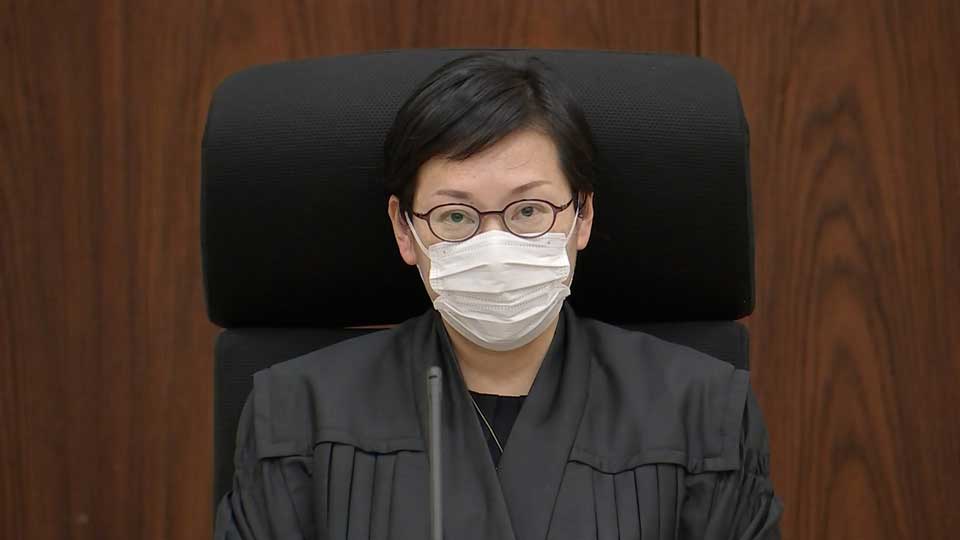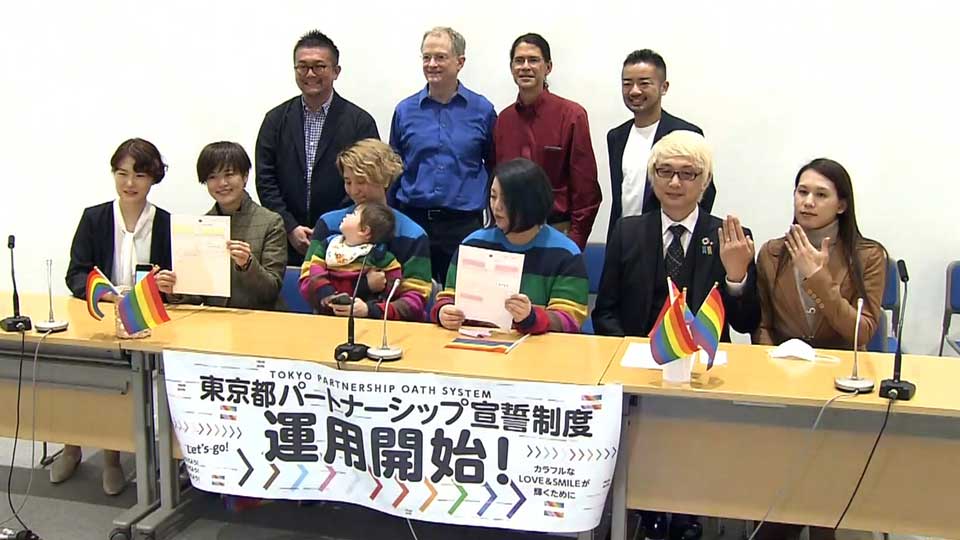Ruling on a lawsuit challenging the same-sex marriage ban, the Tokyo District Court said that without any legal protections for same-sex families, the current situation is in an "unconstitutional state." The court said the constitution guarantees the dignity of individuals and the essential equality of both sexes.
Presiding Judge Ikehara Momoko said in her ruling that same-sex couples have the right to the same legal benefits as heterosexual couples.

But she still dismissed the plaintiffs' complaint, saying it is up to lawmakers to discuss an appropriate system, taking into account the nation's traditions and public sentiment.
Series of lawsuits
The eight plaintiffs were among the same-sex couples who filed similar lawsuits in 2019 in Sapporo, Tokyo, Osaka, Nagoya and Fukuoka. They demanded that the government pay damages, arguing that provisions of the Civil Code and other laws violate the Constitution.
In March 2021, the Sapporo District Court said the government's failure to recognize same-sex marriage was unconstitutional. The court said there should be no difference in legal benefits based on sexual orientation, which cannot be selected or changed at will. The ruling added that not allowing same-sex marriage is discriminatory and lacks reasonable grounds.
But the Osaka District Court ruled in June that the ban does not violate the Constitution. It said Article 24 of the Constitution stipulates that marriage shall be based on the mutual consent of parties of both sexes and does not encompass same-sex marriage.
"Compared to the Osaka ruling, Wednesday's judgement was closer to the plaintiff's claims," says Tanamura Masayuki, a professor at Waseda University's Faculty of Law and an expert on sexual equality issues.
"While rulings are divided over same-sex marriage across the country, Wednesday's verdict acknowledged that the current situation effectively violates the Constitution. It is a positive judicial decision that moves toward marriage equality," he says.
A step forward
"It's a big step forward, but there's still a way to go," said Ooe Chizuka, one of the plaintiffs. "I have mixed feelings about how things will proceed in the legislative branch of government."
Ooe has lived with her partner for nearly 30 years. The couple tried to register their marriage but were rejected. "If the situation doesn't change, we'll remain strangers," she says. "The current system can't ease our anxieties about our future together."
Japan is the only G7 nation that does not allow same-sex marriage.
The first significant move toward marriage equality in the country came in 2015, when Tokyo's Shibuya and Setagaya wards started issuing certificates to same-sex couples that recognize their partnerships as equivalent to marriage.

More than 240 municipalities have now introduced similar systems. But they still fall short of the legal protections and benefits of marriage.
Unlike married couples, same-sex partners are not eligible for tax deductions for a spouse, or medical insurance for an employee's dependent. They also cannot exercise parental authority over a partner's child.
Lawmakers proceed with caution
Following Wednesday's ruling, Chief Cabinet Secretary Matsuno Hirokazu told reporters that the government will closely monitor judgements by other courts.
The head of the Policy Research Council for ruling coalition partner Komeito, Takagi Yosuke, said lawmakers in his party have been discussing gender equality and same-sex marriage in working teams. He said they want to deepen discussions on whether a legal framework can be established for same-sex marriage.
Professor Tanamura believes it may take years to create legislation to guarantee rights for same-sex couples in Japan. But he says he sees significant changes in society that are moving things in the right direction.

